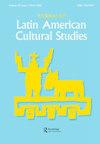The Politics of Detachment and Disruptive Tourism in Las cosas como son (Fernando Lavanderos, 2012)
IF 0.3
4区 社会学
Q4 CULTURAL STUDIES
引用次数: 0
Abstract
Detachment has become a key notion for the study of contemporary Latin American cinema. This article examines how detachment is related to tourism and how it refigures the political in Las cosas como son (2012), a film by Fernando Lavanderos, who is considered representative of a new generation of Chilean directors. By drawing on recent insights from tourism studies, the close reading highlights tourism’s disruptive potential with respect to disaffection in a host–guest relationship. It then relates this “disrupted disaffection” to the film’s ending, arguing that detachment can be conceived of as “unsentimentality” – a notion bridging the apparent gap between an aesthetics of detachment and the political sphere.疏离政治与Las cosas como son的破坏性旅游(Fernando Lavanderos, 2012)
超然已成为当代拉丁美洲电影研究的一个关键概念。本文探讨了超然是如何与旅游业联系在一起的,以及它是如何在Fernando Lavanderos的电影《Las cosas como son》(2012)中重新塑造政治的。Fernando Lavanderos被认为是智利新一代导演的代表。通过借鉴旅游业研究的最新见解,这篇细读文章强调了旅游业对主客关系中不满情绪的破坏性潜力。然后,它将这种“被扰乱的不满”与电影的结局联系起来,认为超然可以被理解为“不多愁善感”——一个弥合超然美学与政治领域之间明显差距的概念。
本文章由计算机程序翻译,如有差异,请以英文原文为准。
求助全文
约1分钟内获得全文
求助全文

 求助内容:
求助内容: 应助结果提醒方式:
应助结果提醒方式:


